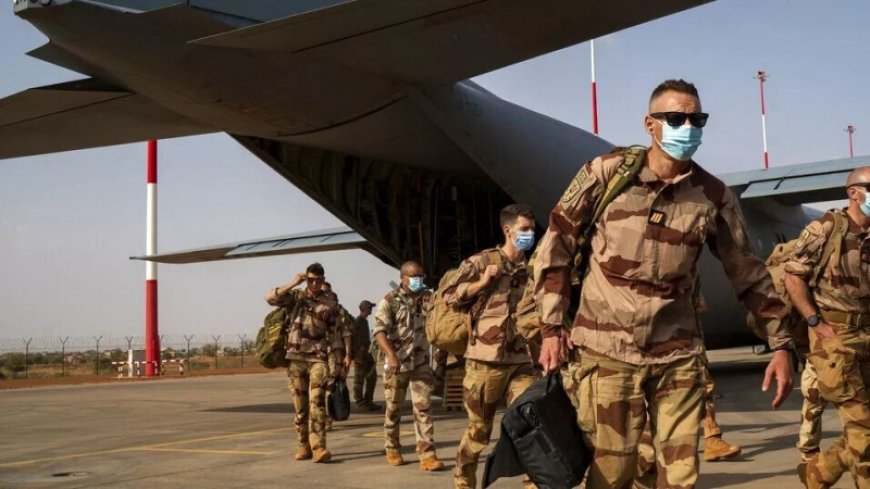France to Reduce Military Presence in Africa Amid Decolonization Efforts
France has announced plans to reduce its military presence in West and Central Africa, marking a significant shift in its longstanding involvement on the continent. This move is part of President Emmanuel Macron's broader strategy to recalibrate France's foreign policy and respond to growing anti-French sentiment in its former colonies.

For decades, France has stationed troops across West and Central Africa under the guise of enhancing security and combating terrorism. However, the current plan aims to scale down its military presence by approximately 600 troops, leaving around 100 soldiers each in Gabon in Central Africa and Senegal in West Africa.This decision comes amidst increasing criticism and widespread discontent among African populations towards France's military interventions. In recent years, nations such as Mali, Niger, and other coastal regions have witnessed rising opposition to what is perceived as French neo-colonialism. Many Africans argue that France's actions primarily serve its interests rather than genuinely addressing security concerns.
French troops have been a fixture in countries like Mali and Niger, ostensibly to combat terrorist groups. However, the efficacy and motives of these operations have been questioned. Critics argue that France’s military presence has not substantially curbed terrorism and has instead fueled resentment among local populations.
The anti-French sentiment has been exacerbated by economic grievances. French companies hold significant stakes in various African industries, importing valuable resources such as gold from Guinea, uranium from Niger, oil from Gabon, and cocoa from Côte d'Ivoire. Moreover, France has been criticized for benefiting disproportionately from these resources, while many Africans continue to struggle with poverty and underdevelopment.
In recent years, there has been a resurgence of nationalist movements across Africa, demanding greater autonomy and the end of foreign military presence. This sentiment has led to numerous protests and a strong push for decolonization. The growing resistance has compelled Paris to reconsider its military strategy and presence on the continent.
Furthermore, the geopolitical landscape in Africa is changing. Countries such as China and Russia have increased their influence through economic investments and military cooperation, providing African nations with alternative partnerships. This shift has also contributed to the declining influence of traditional powers like France.
The reduction in military presence is not just a response to anti-French sentiment but also part of a broader reevaluation of France's role in Africa. Macron's administration seeks to redefine its relationships with African nations, emphasizing economic partnerships and diplomatic engagements over military interventions.
While the reduction in troops might alleviate some immediate tensions, it remains to be seen how this will affect long-term stability and France's strategic interests in the region. The success of this new approach will depend on France's ability to foster genuine, mutually beneficial relationships with African countries, respecting their sovereignty and addressing the root causes of unrest and discontent.
This significant policy shift underscores the complex dynamics of post-colonial Africa and the ongoing struggle for true independence and self-determination among its nations. As France steps back, it must navigate a delicate balance to maintain its influence and support stability in a rapidly evolving geopolitical environment.
Tags:
- African Union
- France
- Sudan
- Africa
- Algeria
- Angola
- Benin
- Botswana
- Burkina Faso
- Burundi
- Cameroon
- Cape Verde
- Central African Republic
- Chad
- Comoros
- Democratic Republic of the Congo
- Djibouti
- Egypt
- Equatorial Guinea
- Eritrea
- Eswatini
- Ethiopia
- Gabon
- Gambia
- Ghana
- Guinea
- Guinea-Bissau
- Ivory Coast
- Kenya
- Lesotho
- Liberia
- Libya
- Madagascar
- Malawi
- Mali
- Mauritania
- Mauritius
- Morocco
- Mozambique
- Namibia
- Niger
- Nigeria
- Republic of the Congo
- Rwanda
- Sao Tome and Principe
- Senegal
- Seychelles
- Sierra Leone
- Somalia
- South Africa
- South Sudan
- Sudan
- Tanzania
- Togo
- Tunisia
- Uganda
- Zambia
- Zimbabwe.













































